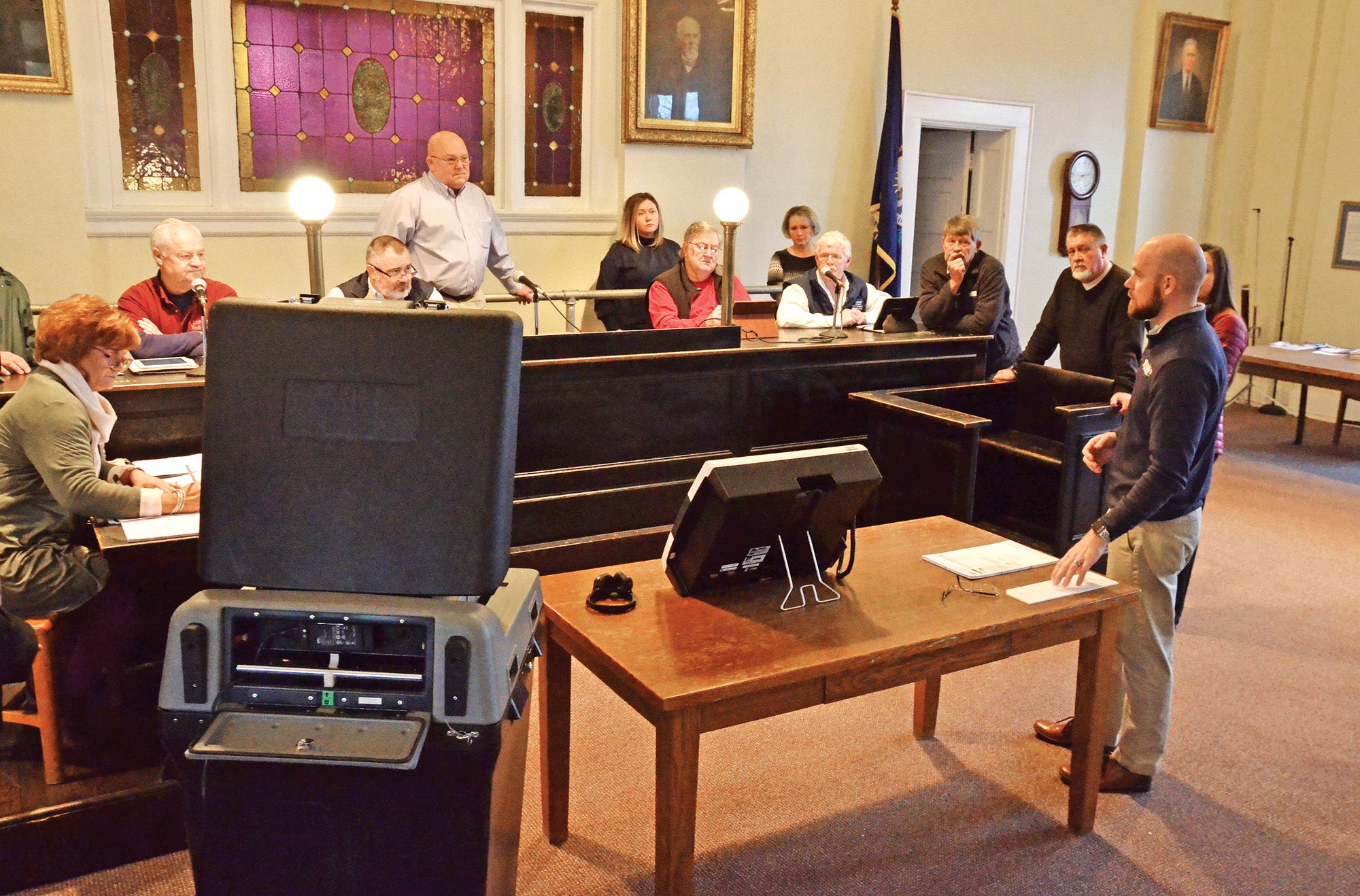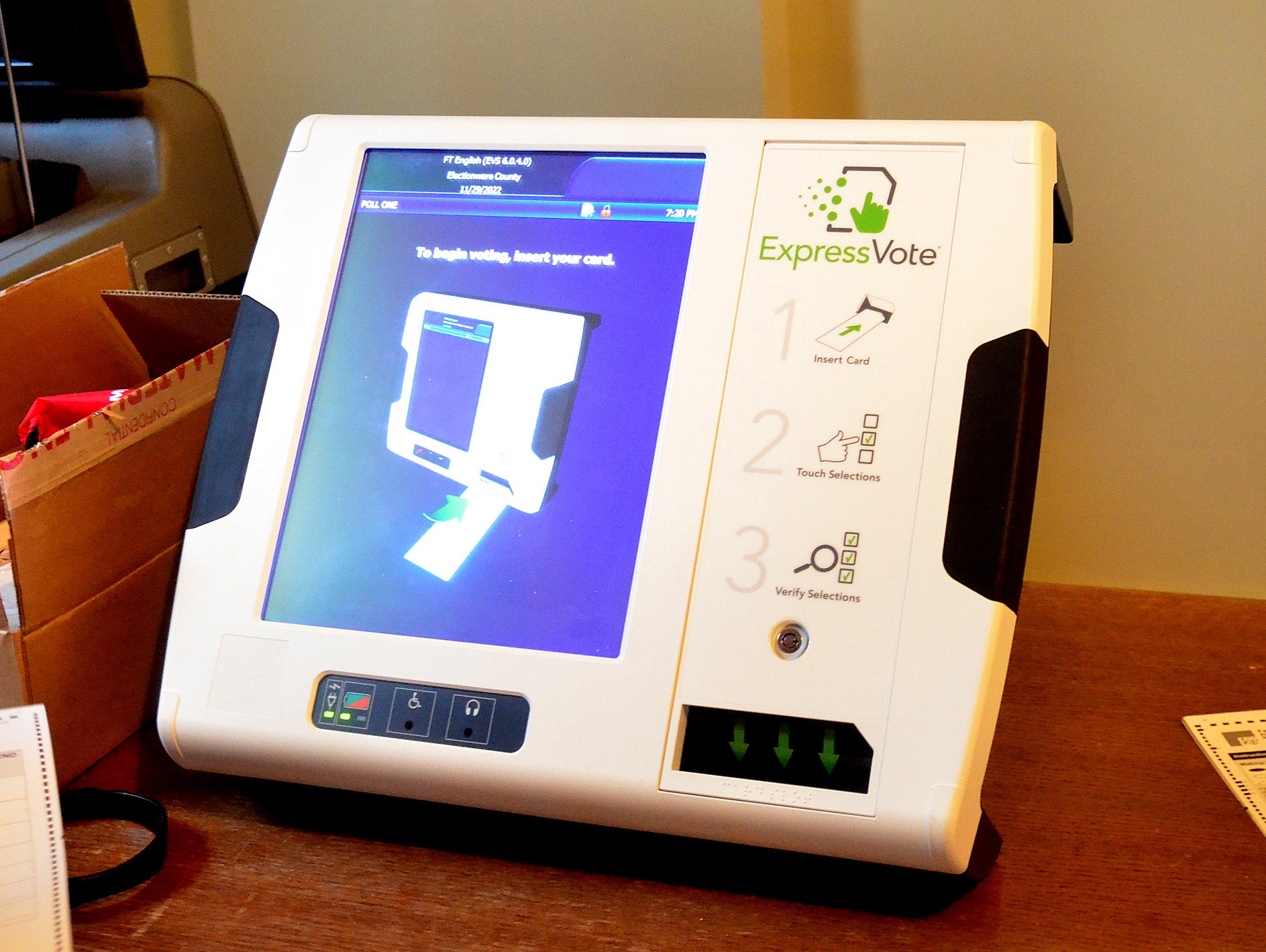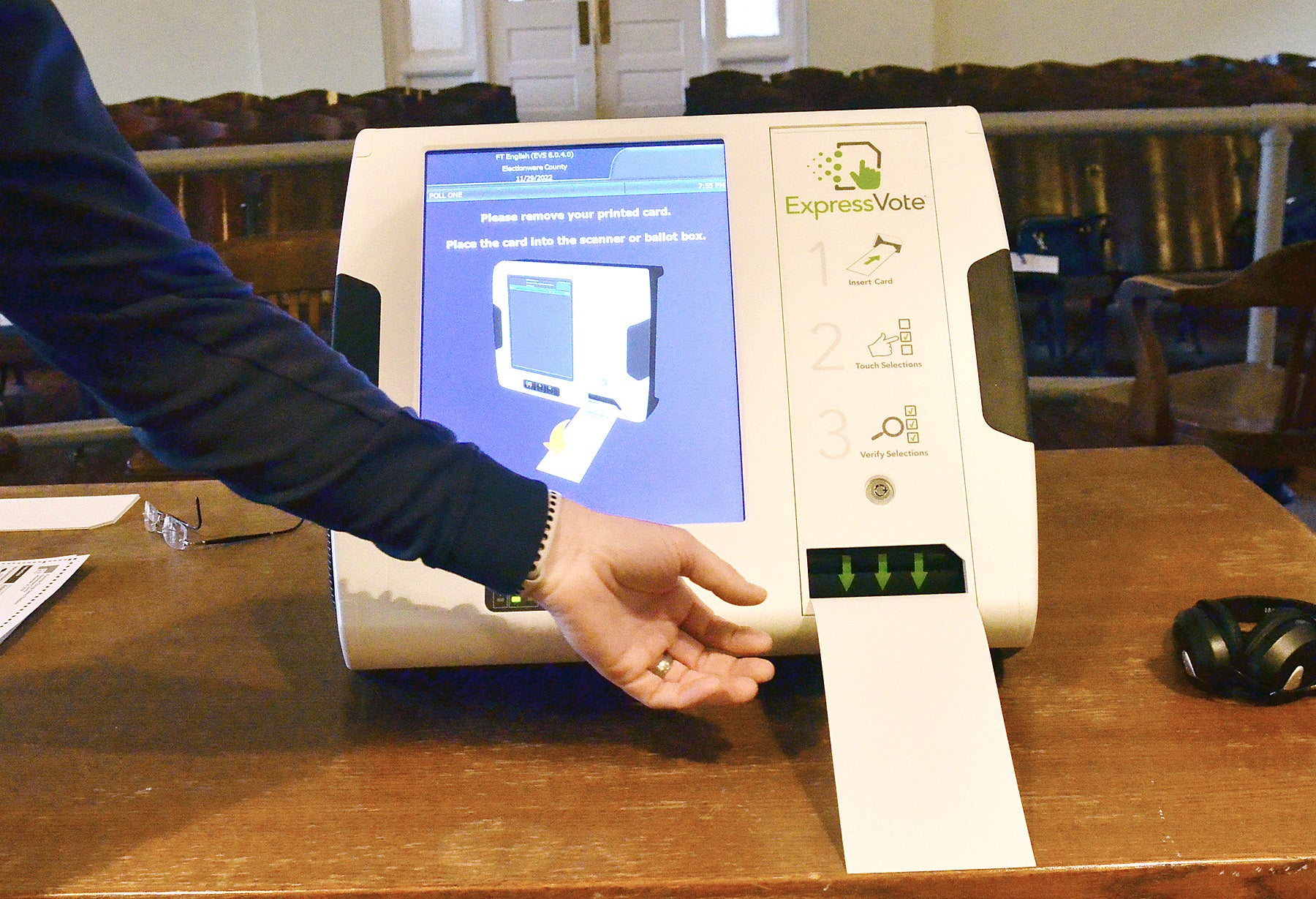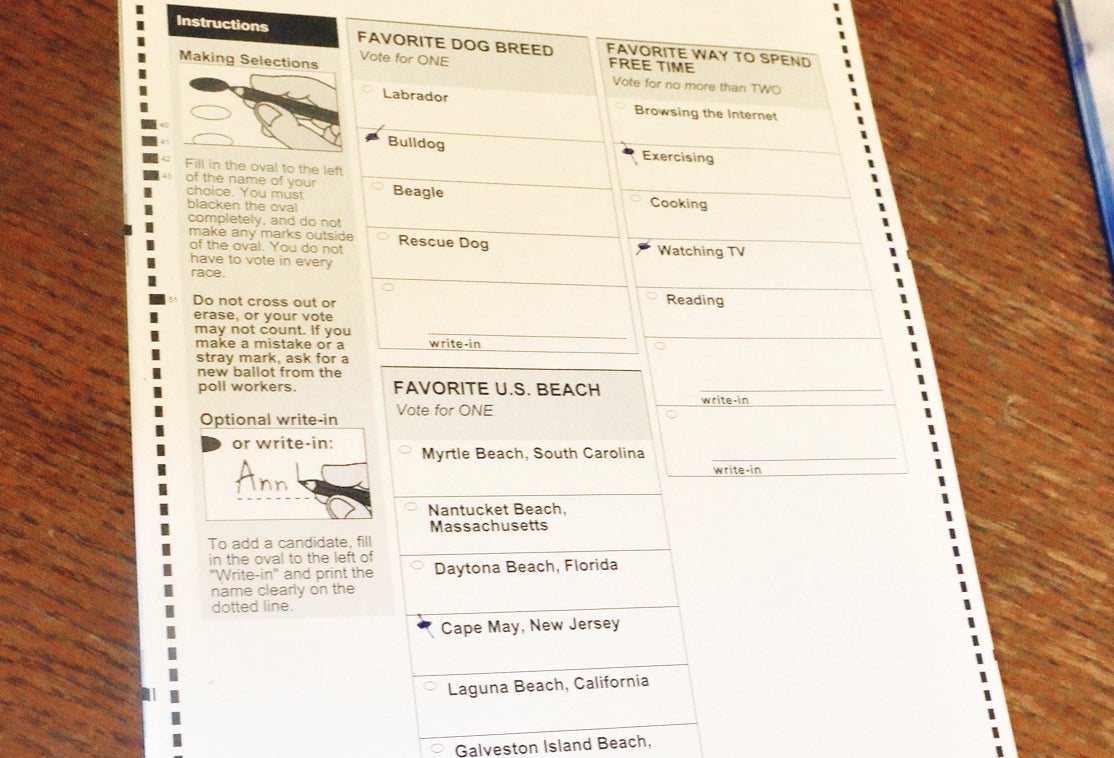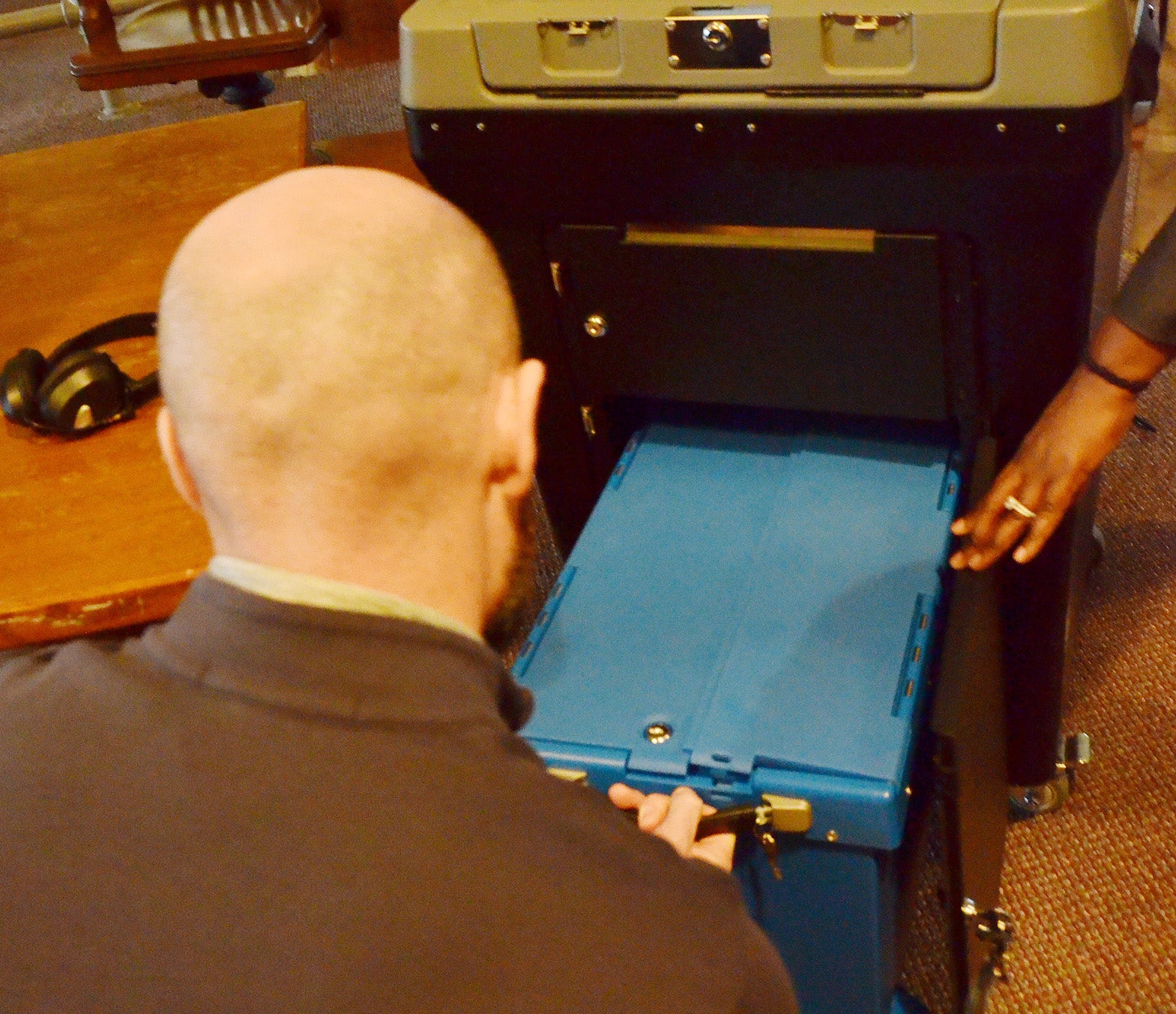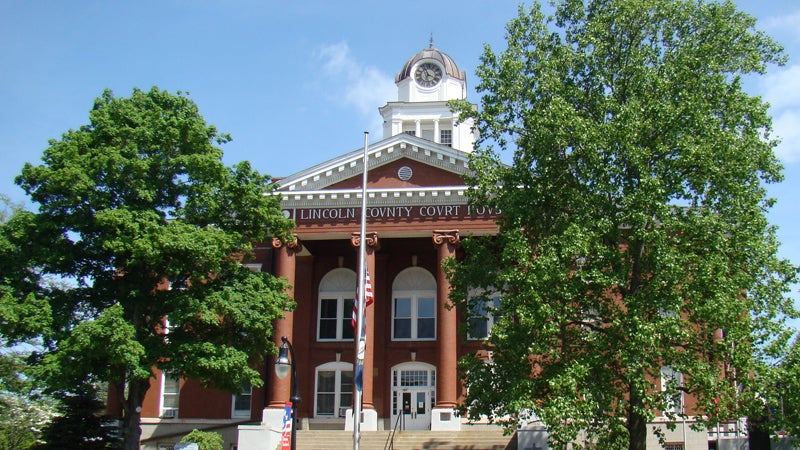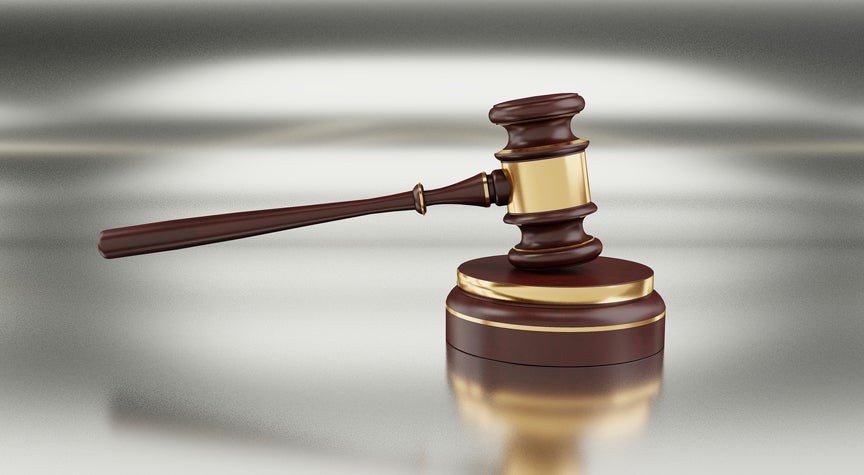Fiscal court looks to buy voting machines with paper trail
Published 10:43 am Thursday, February 6, 2020
|
Getting your Trinity Audio player ready...
|
STANFORD — Electronic voting was going to be the future. Now paper’s making a comeback.
New voting machines are coming to Lincoln, and it could be as soon as the May primary.
A sample paper-trail voting machine was set up in the Lincoln County Courthouse at the recent Lincoln County Fiscal Court meeting to obtain feedback from county officials and election workers.
These types of systems require a physical paper ballot that can be reviewed by voters and kept by officials as a record in case final tallies must be checked. Voters insert the ballots into a tabulation device to cast their votes.
Lincoln County, as well as the rest of the commonwealth is now required to have paper backup for every single vote. The familiar voting machines that have been in use in the county for over 11 years have no paper backup.
To start becoming familiar with potential options, Lincoln County Clerk George O. “Sonny” Spoonamore IV and his office coordinated demonstration on a machine by Election Systems & Software (ESS).
Rob Wiebusch and Staci Jackson of ESS were on hand to introduce their system to the county.
“We are very aware of how Lincoln County runs elections. We are your current election vendor, so we’ve spent a lot of time with Sonny and his team getting ready for elections.
This is our latest fleet of equipment. This equipment is in the Commonwealth, most closely in use at Madison County, also at Jefferson County,” said Wiebusch, Regional Sales Manager for ESS. “We’re working with a lot of other jurisdictions to try to transition. You heard a lot in the news about hanging chads and now it’s Russians. This is a secure system. I like to call it paper and plastic. It’s the most cost effective and efficient fiscally responsible system that we could come up with.”
With the new system, voters would still walk into the poll site and check in like they always have. At that time, they would either be issued a card (thermal paper) to use on the ExpressVote electronic machine or a hand markable paper ballot.
“I’ve talked to the clerks in Boyle County and Garrard County, which they have paper ballots, with a different company. But they pretty much, what they’ve told me is they hide this one,” Spoonamore said as he motioned toward the ExpressVote touchscreen machine. “They don’t want people to use it … They would rather them come in and use paper and be done.”
Wiebusch noted that all ExpressVote machines are a Universal Voting Device with ADA functionality for, for instance a blind voter, somebody who wants to listen to their vote, anyone with macular degeneration or vision problems. The font sizes on the ExpressVote can be increased.
“I don’t see where our voters would have a problem with this machine,” said Lincoln County Judge Jim W. Adams Jr. “Most of our voters, well all of our voters here in Lincoln County are used to the touchscreen. That’s all we’ve had for years.”
Wiebusch began his demonstration by using ExpressVote, assuring the court that no votes are stored on the device.,
“The voter walks up to the ExpressVote. It’s similar to a touchscreen that you’re use to using at an airport, restaurant or Ipad. You just go through and make your selections, touching the screen with your finger. You can use a stylus, too, if you like,” he said while using the machine. “When we’ve finished voting, we bring it to the summary screen. Now, we haven’t marked our ballot yet. What we’ve done is made our selections. We’ve gone through each race and now we’re at the summary screen because, if we wanted to change our vote, we can check that race and go back and now it’s changed on that summary screen. Once the voter is confident in the choices they have made, we ask them to print their card which they were issued.”
“Now, we have the voter with their paper ballot in hand. If they are good with the selections they’ve made, they walk over to the DS200 and they cast their vote. And now they are done.”
The DS200 Ballot Scanner system is a portable electronic voting system that uses an optical scanner to read marked paper ballots and tally the results. This system allows for paper ballots to be immediately tabulated at the polling site and stored in a locked box in a locked compartment.
The process of voting by hand marked paper ballots is simple, with voters filling in bubbles on the ballot then inserting the ballot into the larger slot on the DS200 printer.
What happens if a voter changes their mind once the card is printed from ExpressVote or they’ve marked their paper ballot was a question raised as Wiebusch walked over to the DS200 scanner to cast the mock vote.
“If they get that card and decide it’s not right, can they tear up that card and start again?” asked Lincoln County Attorney Daryl Day.
Wiebusch said that voters should not tear up the card. He said the proper procedure is to bring the ballot back to the table to spoil that ballot and another ballot will be issued.
With the DS200 able to scan every five seconds, Day said the hand markable ballots might be a way to speed up the voting process.
“If you have a higher turnout, I think the big ballots are a little bit quicker because you don’t have to punch and print,” he said. “Paper ballots would seem to speed it up long lines.”
Barcodes are on ballots for speed and accuracy. And that raised the question of voter security.
“Anything that’s numbered like that, people are concerned, ‘Well, he’s keeping up … I’m voter 62 ….” said Spoonamore.
“And they see voter number 62 voted for this and somebody’s going to use it against me,” Day chimed in.
“Is the paper itself prenumbered or does it become identified once the ballot is cast,” asked Mary Hopkins, County treasurer.
Wiebusch assured her and the others that the ballots were not prenumbered and that the system was secure.
“The system is very secure. Barcodes are for efficiency and accuracy,” he said.
Some of the security features of the system are:
• Physical and System Access Controls
• Verifiable Paper Record
• Audit Logs
• Proprietary Flash Drives
• System Application Controls
• Encryption, Hash Validation and Digital Signatures.
The voting system stands along and is not hooked up to the internet or any other device.
There was no privacy sleeve on the ExpressVote device demonstrated but each would have one at polls. There would also be privacy in the hand market ballot area.
The current ESS bid on 18 ExpressVote machines and 13 scanners is around $155,000.
No action was taken on whether to purchase the ESS voting system.
The court will also be hearing from another vendor, Harp Enterprises.


